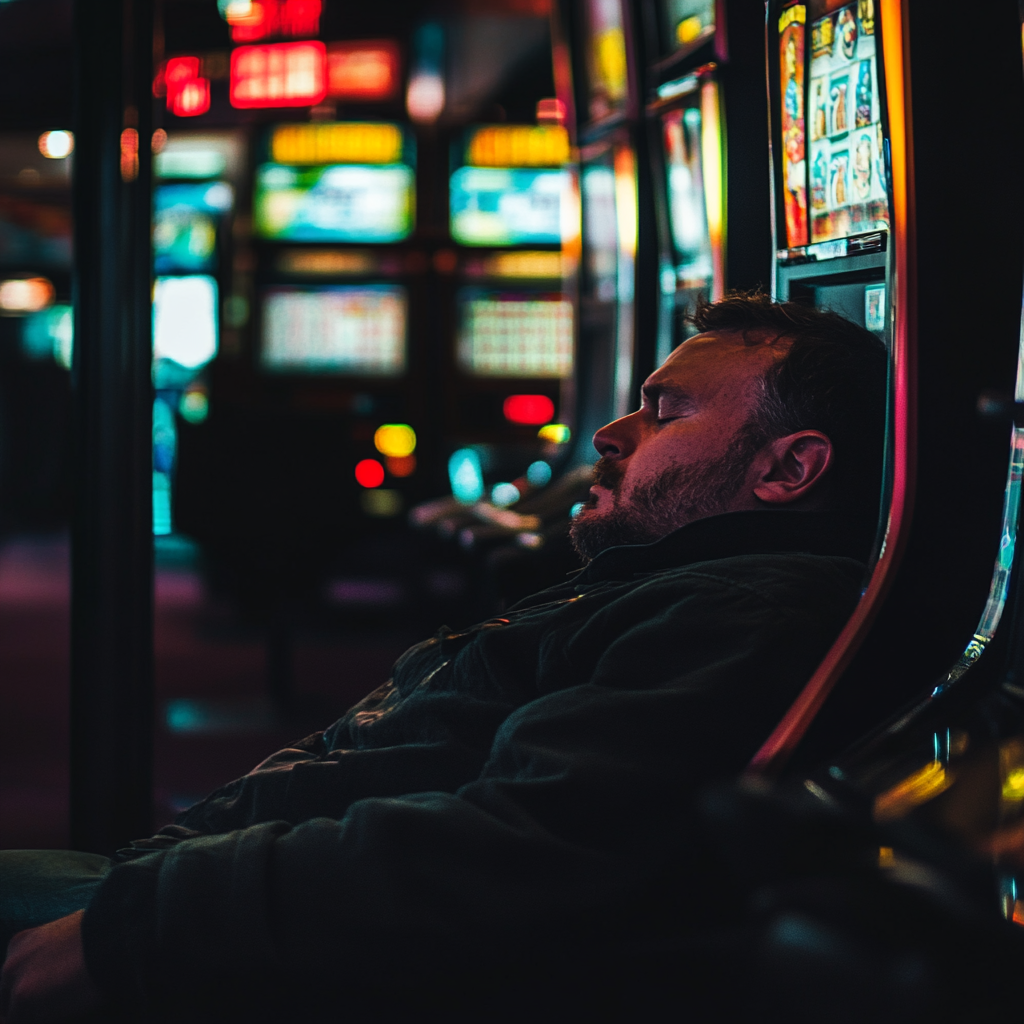Introduction
Gambling, in its many forms, is a popular pastime enjoyed by millions of people across the world. From casino games to lotteries, the thrill of potentially winning money keeps individuals coming back. Among the various types of gambling, sports betting has seen an enormous surge in popularity in recent years, particularly with the rise of online platforms and the legalization of betting in numerous countries. While many see gambling, including sports betting, as a form of entertainment, it carries significant risks that can have devastating effects on individuals, families, and society.
In addition to the financial toll, gambling and sports betting can lead to addiction, mental health issues, strained relationships, and even criminal activity. This article delves deep into the dangers of gambling and sports betting, highlighting how these activities, when unchecked, can spiral out of control and wreak havoc on people’s lives.
Table of Contents
The Rise of Sports Betting: A Cultural Shift
The rapid expansion of sports betting in recent years is largely fueled by its increased accessibility. Once restricted to casinos or betting shops, sports betting has now found a home on mobile apps and websites, where individuals can place bets at any time, from anywhere. This rise in online platforms has led to a dramatic shift in how people engage with sports. Instead of simply enjoying a game as a fan, bettors now have a financial stake in the outcome of every play.
The legalization of sports betting in many regions, including parts of the United States, has only further normalized the practice. Major sports leagues and media companies have partnered with betting firms, integrating gambling promotions into live broadcasts, team sponsorships, and advertisements. This growing ubiquity of sports betting has led to an increase in participants, particularly among younger demographics, who are often targeted with promotions like “risk-free” bets and signup bonuses. While these incentives may seem harmless, they often lure people into a dangerous cycle of repeated betting.

Gambling Addiction: A Growing Epidemic
At the core of the problem is gambling addiction, an issue that is just as prevalent in sports betting as it is in more traditional forms of gambling. Gambling addiction, often referred to as “compulsive gambling” or “problem gambling,” is a recognized psychological disorder that can have severe consequences for mental health.
Sports betting, in particular, creates unique psychological traps. The constant availability of games and betting opportunities (with multiple sporting events happening daily across the world) can make it hard for individuals to stop. For those struggling with addiction, the “near miss” of a game-winning touchdown or last-second goal can create an illusion of control, leading them to believe they can predict the outcomes and beat the odds. This false sense of control often leads to bettors placing larger, riskier bets in hopes of winning back lost money.
Like traditional forms of gambling, sports betting addiction can have severe emotional consequences, including:
- Increased stress and anxiety: Constantly thinking about betting opportunities or how to recover lost funds can create overwhelming stress.
- Depression: As losses pile up and financial problems worsen, many bettors experience deep feelings of hopelessness and depression.
- Social isolation: Many people with gambling problems hide their behavior from loved ones, leading to guilt, shame, and further withdrawal from family and friends.
The addiction often progresses quietly. Initially, someone might bet small amounts during games they are already watching. However, over time, the thrill of winning (or the need to recover losses) can lead to a pattern of excessive gambling, where the person is constantly betting on multiple games, even those they have no interest in. This constant cycle of betting can cause significant harm, both emotionally and financially.

Financial Ruin: The High Cost of Gambling and Sports Betting
The most immediate and visible consequence of gambling, including sports betting, is financial devastation. Betting inherently involves the risk of losing money, and in most cases, the odds are stacked against the player. While sports bettors may believe that their knowledge of the game gives them an edge, the reality is that even the most skilled bettors lose in the long run. Bookmakers design their odds to ensure they make a profit regardless of the outcome of a game, meaning consistent losses are inevitable for most players.
For individuals who gamble responsibly and within their means, the financial risk may be manageable. However, for those struggling with addiction, the desire to continue betting can lead to mounting losses, spiraling debt, and even financial ruin. Common financial problems faced by gamblers include:
- Maxed out credit cards and loans: Desperate to place more bets or cover existing losses, problem gamblers often turn to credit cards or personal loans, accumulating high levels of debt.
- Bankruptcy: In extreme cases, individuals may lose their savings, homes, or businesses due to gambling debts.
- Loss of employment: The stress and distraction of gambling can affect a person’s performance at work, leading to job loss and further financial instability.
The concept of “chasing losses” is particularly dangerous in sports betting. Bettors who have lost money may place larger bets in hopes of winning it back, often leading to even greater losses. This behavior is driven by a cognitive distortion that convinces the bettor they are just one win away from recovering their losses. Unfortunately, this rarely happens, and the financial situation only worsens.
Sports Betting and Mental Health: The Hidden Costs
In addition to financial damage, sports betting can take a severe toll on mental health. Many bettors experience significant stress and anxiety as they follow games, check scores, and anxiously await the outcomes of their wagers. The constant pressure to win and the emotional highs and lows associated with betting can exacerbate existing mental health conditions or contribute to the development of new ones.
Research shows a strong link between gambling addiction and mental health disorders such as depression, anxiety, and substance abuse. For some, gambling provides a temporary escape from life’s stresses, but this escape can quickly turn into an unhealthy dependency. When combined with the financial problems caused by gambling losses, mental health issues can escalate, leading to a vicious cycle that is difficult to break.
Perhaps the most tragic aspect of gambling addiction, particularly in sports betting, is its association with suicide. Studies have consistently shown that problem gamblers are at a higher risk of suicidal thoughts and behaviors compared to the general population. The weight of financial burdens, coupled with feelings of guilt, shame, and despair, can make some individuals feel that suicide is the only way out.

The Strain on Relationships: Broken Trust and Family Distress
Another significant consequence of gambling addiction is the strain it places on relationships. Families of individuals addicted to gambling often bear the brunt of the emotional and financial toll. The addict may lie or deceive loved ones to hide their gambling problem, leading to a breakdown of trust within the relationship. Partners may feel betrayed, especially if joint savings, children’s college funds, or retirement money have been gambled away.
Children of problem gamblers can also suffer, growing up in environments marked by financial instability and emotional distress. They may witness their parents fighting over money or struggling to pay bills due to gambling losses, leading to feelings of insecurity and anxiety. In extreme cases, gambling-related debt can result in foreclosure, eviction, or homelessness, severely affecting the family’s quality of life.
The emotional strain caused by gambling addiction often leads to divorce or separation. Spouses who feel unable to cope with their partner’s addiction may feel forced to leave the relationship, especially if repeated attempts at intervention have failed. This can further isolate the addicted individual, driving them deeper into their gambling habits.

Criminal Behavior: Gambling’s Path to Illegal Activities
Desperation to recover gambling losses can drive some individuals to commit crimes. Sports betting, in particular, presents a gateway to criminal activities as addicted gamblers look for ways to quickly obtain money for future bets. This may include theft, fraud, or embezzlement, often from friends, family members, or employers.
Gambling-related crime not only affects the individual and their immediate circle but also places a significant burden on the criminal justice system. Courts and prisons are filled with individuals whose gambling problems have led them down a path of illegal behavior. For some, arrest and prosecution may be the first time they confront their addiction and seek help. Many jurisdictions now offer gambling diversion programs aimed at rehabilitating individuals rather than simply punishing them for their crimes.
The Role of Technology in Amplifying the Risks
The advent of online gambling and mobile apps has significantly amplified the dangers associated with gambling, particularly sports betting. Online platforms are available 24/7, making it easier for individuals to place bets at any time, often without anyone knowing. The anonymity of online betting can make it harder for friends and family to detect a gambling problem until it’s too late.
In addition to ease of access, online gambling platforms often employ sophisticated algorithms to keep players engaged. These platforms use data-driven strategies to personalize betting experiences, offering targeted promotions and incentives that encourage continued gambling. For example, a bettor who experiences a losing streak might be offered a “free bet” to keep them playing, further deepening their involvement.
Moreover, the speed at which online gambling operates allows bettors to place multiple bets in quick succession. With sports betting, in particular, individuals can bet on in-game events, like the next goal or foul, creating a fast-paced environment that heightens the addictive nature of the activity.

Sports Betting and Society: A Public Health Crisis
The rise of sports betting poses a significant public health challenge. While governments and media companies profit from the growing popularity of sports betting, they must also contend with the societal costs it brings. These costs include increased healthcare expenses for treating gambling addiction, mental health problems, and the financial strain placed on social services as families struggle to cope with the fallout of gambling.
Many experts argue that stricter regulations are needed to mitigate the risks of gambling, particularly sports betting. This could include limiting the types of bets that can be placed, reducing advertising targeted at vulnerable populations, and requiring online platforms to implement more robust safeguards to prevent problem gambling.

Conclusion: A Call for Awareness and Action
While gambling and sports betting may appear to be harmless fun, they come with significant risks that can have devastating consequences. The financial, emotional, and societal toll of gambling addiction is immense, and the rapid expansion of online sports betting has only intensified these dangers.
For individuals, recognizing the warning signs of gambling addiction is crucial. If betting begins to feel like more than just entertainment, or if it starts to interfere with relationships, work, or financial stability, it’s essential to seek help. For society at large, increased awareness, responsible gambling initiatives, and more stringent regulations are critical steps in mitigating the dangers associated with gambling and sports betting.
By taking proactive measures, we can help protect individuals and communities from the hidden dangers of gambling and prevent the next wave of addiction from devastating even more lives.
Bellow are some links that could help people suffering from gambling addiction:
https://www.betterhealth.vic.gov.au/health/healthyliving/gambling-how-to-change-your-habits
https://hellenicpractice.com/home/addiction-treatment
For more articles you can click here, thanks for reading.





